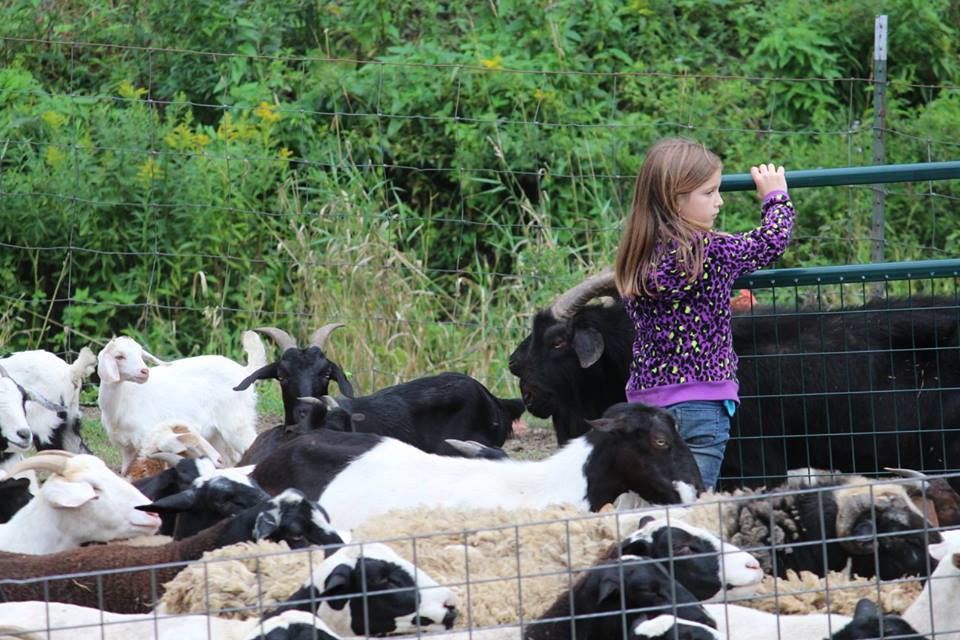Today is a sad day for me. It’s sad because I have to make some hard decisions…decisions I don’t want to make. I have to decide which of our goats and sheep should be culled from the herd.
If you haven’t heard of the term, the word “cull” in agriculture means to remove or reject unwanted or unproductive animals or plants. It doesn’t sound very nice, but it’s necessary for many reasons. First and foremost, farming is a business. And like any business, farmers must pay attention to their bottom line. Older animals are often culled from the herd because they are not as productive as they once were, either not producing enough milk or not successfully rearing enough offspring to make them profitable. Secondly, removing a portion of the stock frees up resources like food and water for those that remain. If you have ever planted carrots, there’s a point at which you had to “thin” or cull out some of the sprouted plants so that the remainder will have room and a chance to grow to the proper size. Leaving all your sprouted seeds to compete for sun, space, and water gives you a bunch of really scrawny carrots!
But deciding who is worthy of staying and who is not “pulling their weight” is particularly hard for me. I allow little things like, “oh, but I like her spots!” or “she looks just like her grandmother” to cloud my judgement.
I’ve kept some favorites for far too long, telling myself that they deserved a good retirement. Evelyn was one such animal. One of the first goats on our farm, she was the first to give birth here. She and I learned together how to manage goat labor and delivery, how to tend to newborns and to sore teats. She was a fantastic mother and would coo a soft “dut-dut-dut” to her children—and to me when I called her name. I loved milking her; I would often place my ear on her side as I squeezed milk into the bucket, listening to the sounds emanating from her four stomachs. (It was like a symphony in there!) If she was agitated at milking time, I would sing “You Are My Sunshine” to her and we would slip into the rhythm of milking like old friends. Evelyn was able to retire here, and lived to a ripe old age until she passed away in her sleep this last spring. I still miss her very much.
Of course not all of our animals can hold such a unique place in my heart. That doesn’t make the culling decision any less heartbreaking, though. For example, one ewe on my list simply must be culled. Due to scar tissue in both sides of her udder, she cannot make any milk and therefore cannot rear any babies. That little fact had slipped my busy, scattered mind until she had twins this last week. By the time I had put two and two together, both babies had missed getting colostrum and were weak from starvation. Despite my best efforts, both quickly passed away. I can only blame myself for such sloppy animal husbandry. And it’s such a shame—this ewe produces big, beautiful babies and with her loving attention and protective nature, is one of the best mothers I’ve ever seen. She just can’t produce any milk. Maddening, isn’t it?
There are other reasons to cull, too. This long dry spell has meant a major delay in our second cutting of hay. Our hayfields are downright crispy! Farmers throughout the Mohawk Valley are sweating over whether they’ll have enough forage to feed their animals this winter…which may mean having to sell animals to either match hay stored away or to raise money to buy more feed. And then there’s the worst-case scenario that many dairy farmers especially have been facing during this long period of low milk prices: Having to sell animals just to pay their bills.
So, where do cull animals go? Ours most often go to an auction barn, where they are either bought for meat or by other farms looking for bargain breeding stock. Either way, I never know their fate and that makes me dislike the culling decision even more. If enough farmers cull aggressively in response to low milk prices or lack of feed, the market gets flooded and drives auction prices down. The ole’ rule of “supply and demand” never takes a vacation.
Unfortunately, the alternative—doing nothing—is not an option. If I don’t “thin” my carrots, I won’t get any good carrots. If I don’t manage my flock, I’m guaranteed to lose money. It is decisions like these that make me wonder whether I have the fortitude and self-discipline to be a good farmer.
Every once in a while, the best of both worlds come together and I can find a loving home for these animals. Sophia, an older goat that had given me many productive years, was appearing a little worn out and haggard (like me after a long day!) and I decided it best not to have her bred again. I ended up finding a wonderful home for her with a retired couple and one lonely little pony…it was a match made in heaven!
